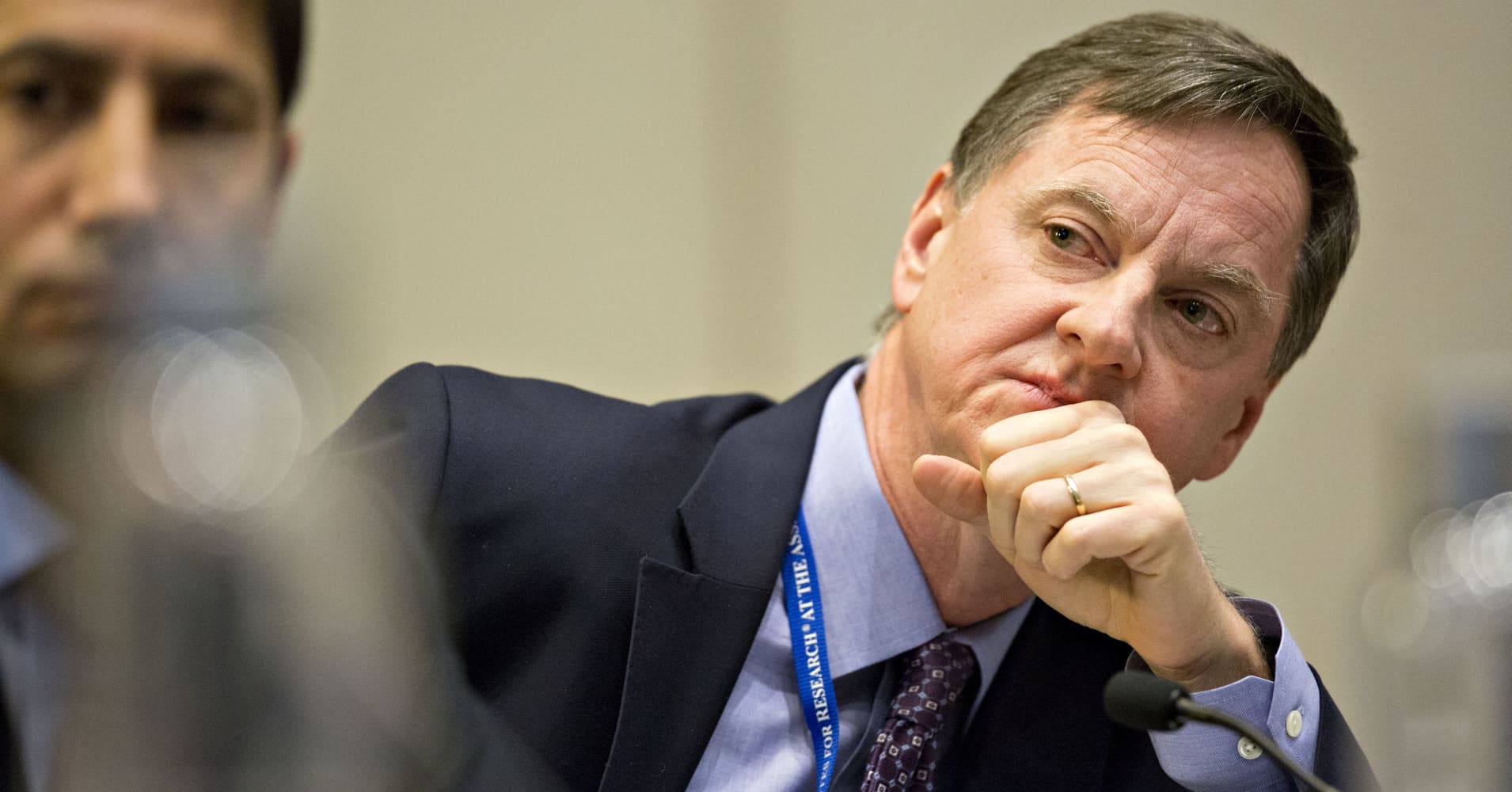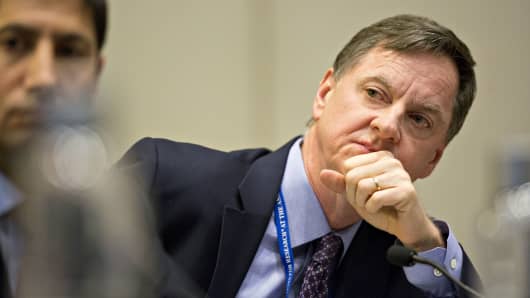HONG KONG — Chicago Federal Reserve President Charles Evans says the U.S. economy has slowed, but he downplayed chances of a recession.
Concerns about an inverted yield curve — an important recession indicator — spooked U.S. financial markets on Friday. An inverted yield curve occurs when short-term rates surpass their longer-term counterparts.
Addressing the markets' reaction, Evans told CNBC at the Credit Suisse Asian Investment Conference: "I think we have to be a little bit nervous obviously."
"Whenever the yield curve gets flat, we see growth decelerating and, like I say, I'm looking for almost 2 percent growth this year. That sounds kind of low but it's actually relative to trend of one-and-three-quarters, it's a good growth rate," he told CNBC's Nancy Hungerford and Emily Tan in Hong Kong on Monday.
"I think anytime the economy decelerates from 3.1 percent down to 2 percent, it takes a really sharp-minded focus to kind of go, 'All right, it's less than what we had but it's still pretty good,'" he added.
Earlier, Evans told a panel at the conference that the world's largest economy remains robust. "I look at the nature of the U.S economy, I look at the labor market, it's strong, the consumer continues to be strong," he said.





